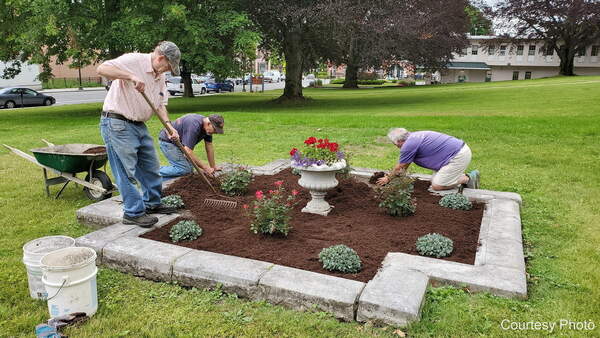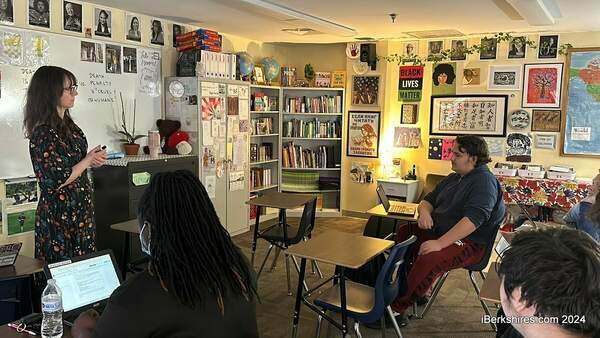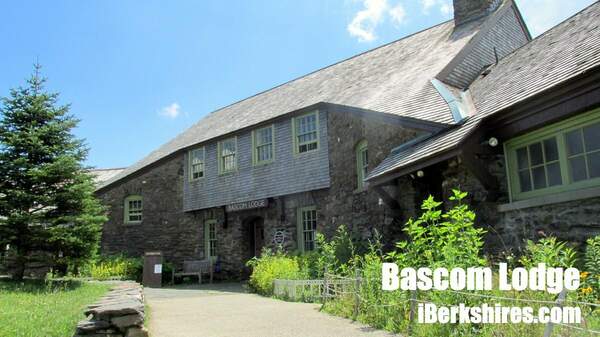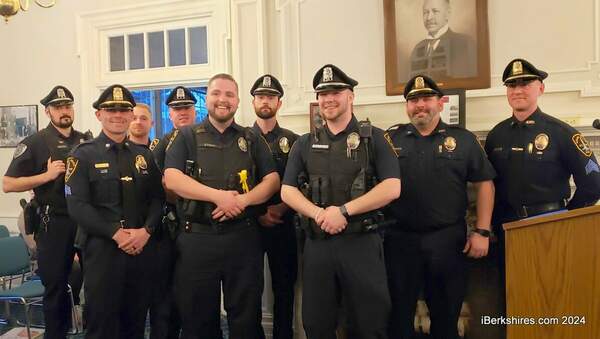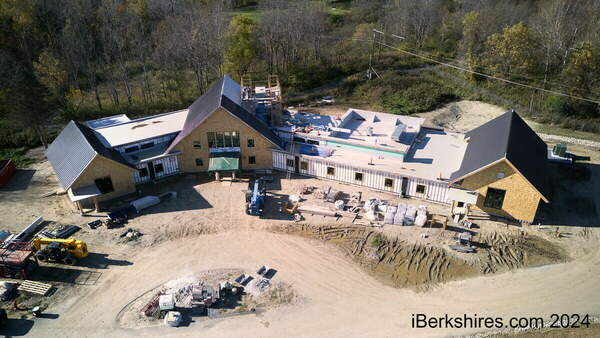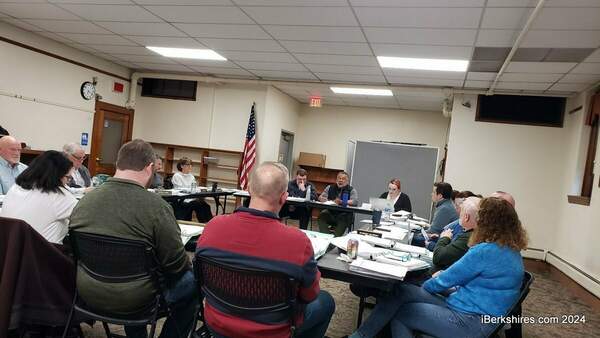Adams Taking Green Communities Program To The Next Step
.JPG) Jim Barry of the Green Communities Program explains the criteria to the Selectmen. Jim Barry of the Green Communities Program explains the criteria to the Selectmen. |
ADAMS, Mass. — The Selectmen have agreed to continue discussions on adopting the Green Communities Designation Grant Program.
Jim Barry, regional coordinator of the Green Communities Program, told the board on Wednesday night what the program could offer Adams.
By adopting the policy and meeting the criteria, Adams will commit to lowering its energy use baseline by 20 percent and adopt new building codes focused on efficiency.
Barry said communities that meet the five qualifications will receive a minimum of $125,000. Communities receive more money depending on the qualifications they have already met and population.
He said poorer towns receive more money and he expects Adams to fall in the $155,000 to $165,000 range. This money can be used to create more efficiencies.
Barry said after the first year, communities can apply once a year for up to $250,000 to fund continued work.
Adams has already met criteria one by adopting the by-right solar bylaw. Muncipalities are required to adopt as-of-right siting in designated locations, which allows for plan approval without special permitting.
Second, towns must expedite the permitting process within a 12-month time frame. Towns do not have to approve the project, but do have to answer within the 12 months.
Third, municipalities must find their energy use baseline and create a five-year plan that focuses on reducing it by 20 percent.
"You would come up with a reasonable five-year plan that you would accomplish if and when you have money," Barry said. "The idea being if you become a green community, you would get the money."
Barry said criteria four required that all future town vehicle purchases be fuel efficient. Commercially unavailable fuel-efficient cars such as Department of Public Works trucks and police cruisers are exempt. He said this request will not affect Adams.
"For most towns this is easy because you don't have to worry about it. You don't buy selectmen a new car, but if you were going to buy the selectmen a new car it needs to get 22 mpg," he said. "You can’t get a fuel-efficient snowplow either; you aren’t going to attach a snowplow to a Prius."
The requirement is the adoption of an efficiency building code that is stricter than the basic building code. Barry said this is called the "stretch code" because when it was initially created it was an option beyond the basic code.
He said many towns have had issues with the stretch code because they were afraid it would increase the cost of construction and deter new buildings. However, Barry said the basic code changes every few years and is almost equal with the stretch code. In 2009, the stretch code was considered 20 percent more energy efficient than the basic code.
"The difference between a stretch-code home and a non-stretch-code home today is substantially less than it was five years ago when we first rolled this out," he said. "It's more of a matter of detail and not spending a whole lot more money."
He said one of the largest extra cost is the performance test. Experts have to come to the new home and test its efficiency to get the rating. He said this can cost between $750 and $1,200 and there are grants available for this.
Adams had turned down the program in the past because of the stretch code, Barry said, but since things have improved and more than 130 communities in Massachusetts have adopted it.
The Selectmen were concerned that the new code would affect people who want to do additional work on their homes.
Barry said renovations, additions, rehabilitations, repairs, and historical buildings are exempt and only new buildings have to follow the new code.
The Selectmen asked if the stretch code will change in the future when the basic code catches up.
"If you were concerned that you are handcuffing your town to a code that may negatively affect the town know that you aren’t handcuffed forever," he said.
The board agreed they wanted to continue to the next step and have a workshop discussing the program and and later a public meeting.
"I have always been a proponent of this, and I think we should try it again," Chairman Arthur "Skip" Harrington said. "If the board is in favor, I'd like move it to the next stage."
Tags: green building, green communities,

